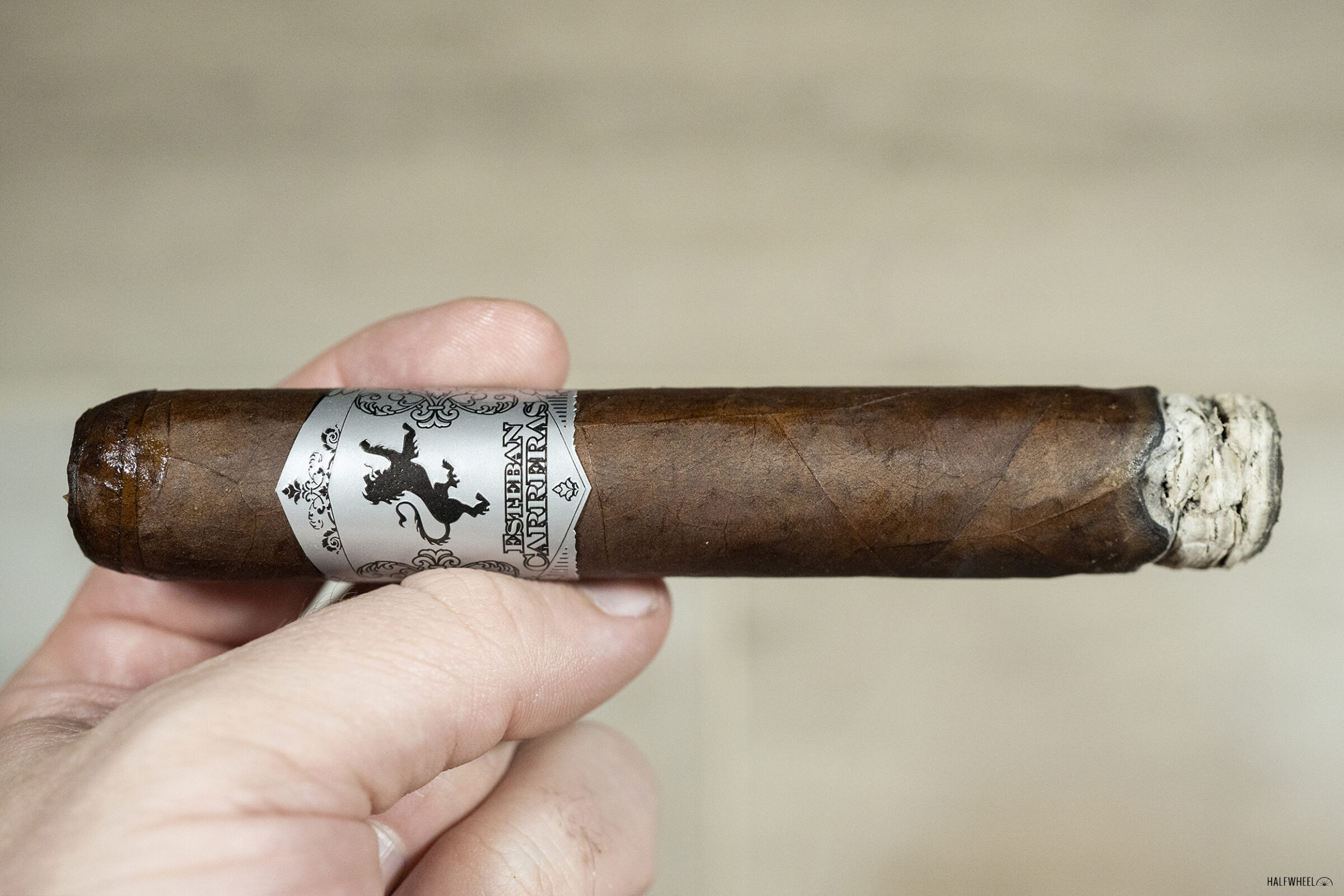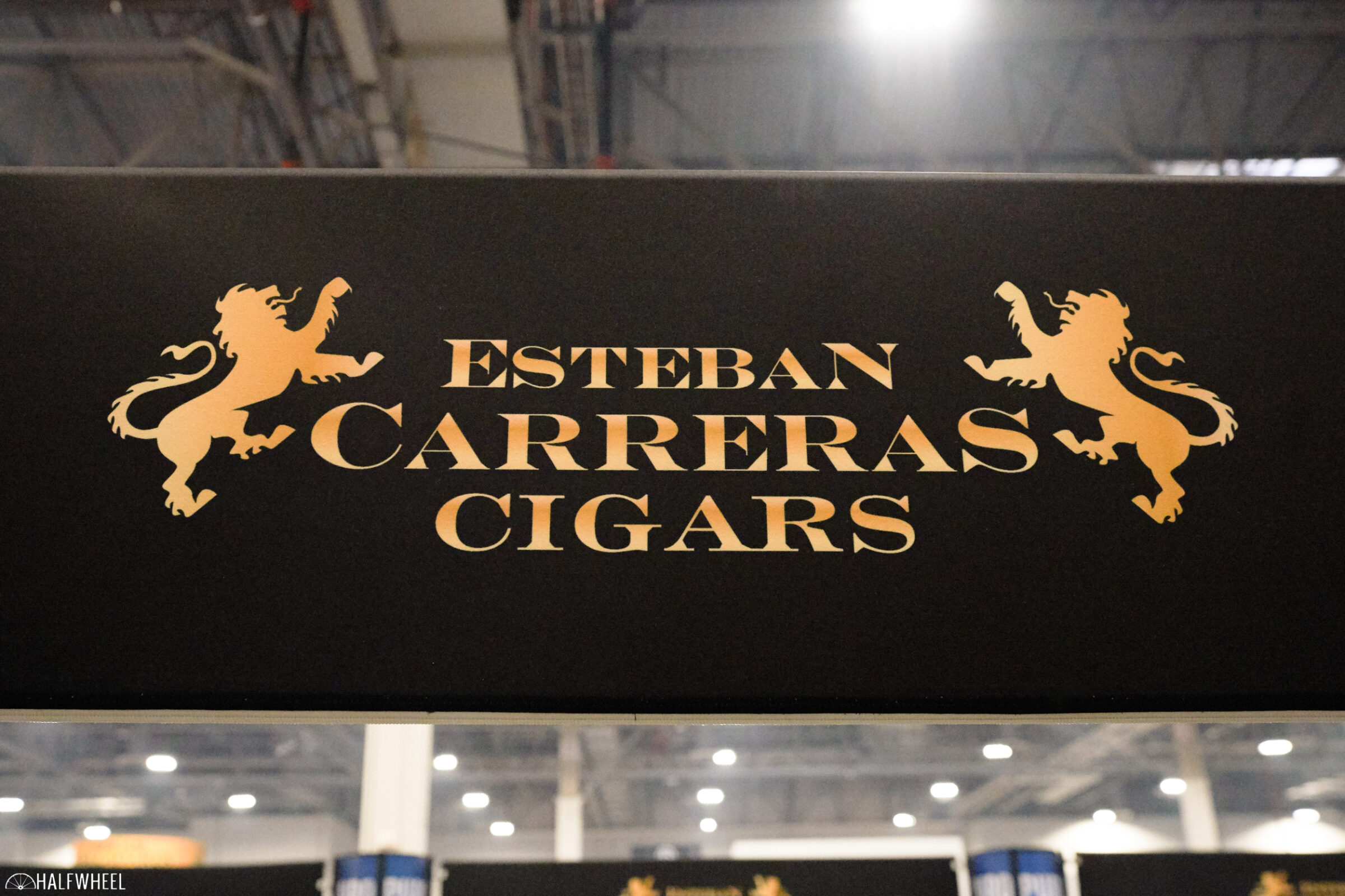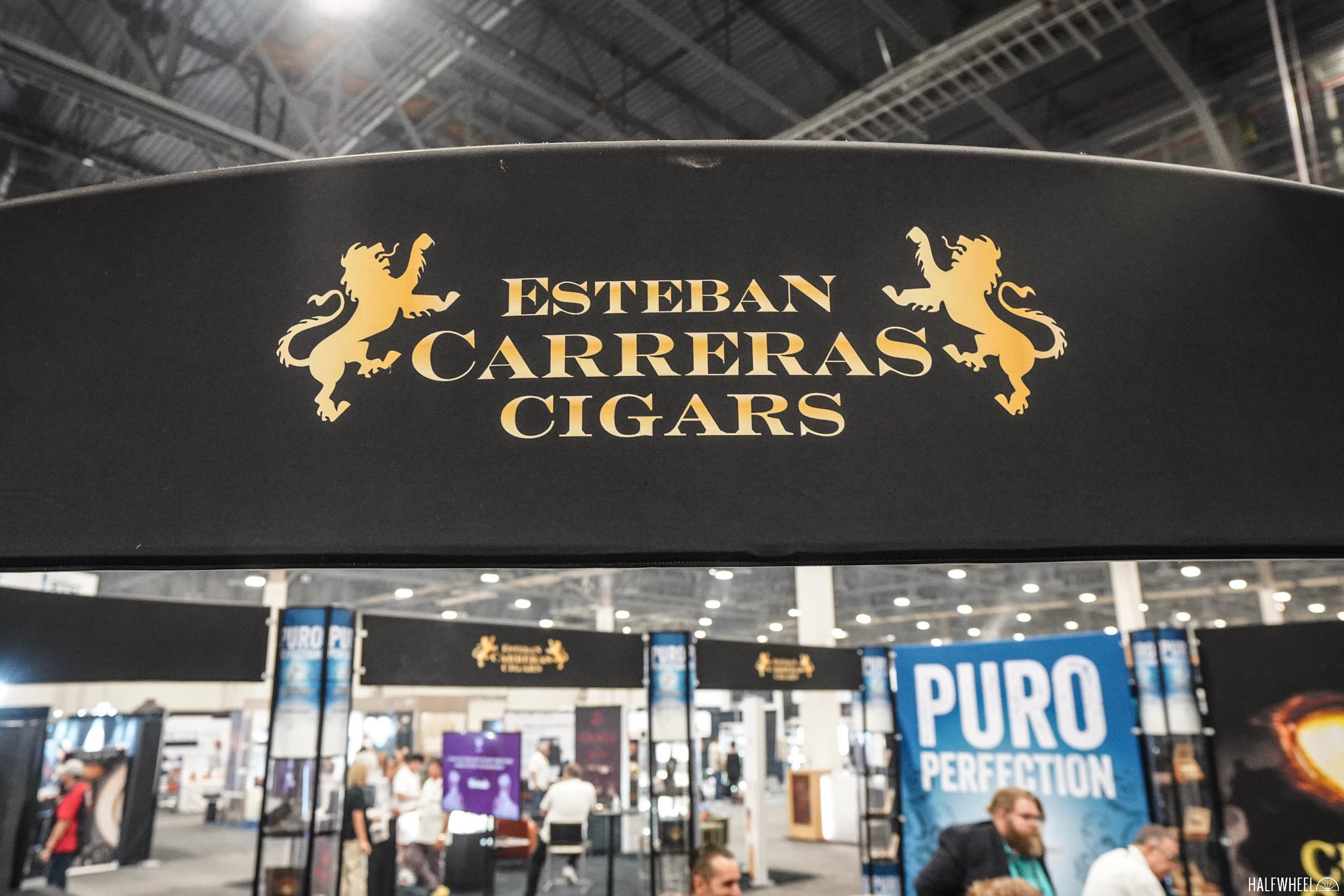If cigars with a real backstory are intriguing, this is one that has certainly stood out in my mind since the line debuted at the 2022 PCA Convention & Trade Show.
As the story goes, Gonzalo Puentes, who runs Esteban Carreras’ factory, once worked for Cuba’s Ministry of Agriculture and, in particular, the group responsible for tobacco production. Puentes and his colleagues were tasked with developing improved corojo seeds, so they used positive selection to select the strongest plants; for example, start with 100 plants, take the seeds from the best five, plant those seeds, and repeat the process a few times to get outstanding seeds that should result in outstanding plants. Except instead of giving those best seeds to the government, they were kept and smuggled out of the country, while less desirable seeds were handed over. Thus, they had taken the crop from their devil—Fidel Castro—and his regime.
As happens with many cigars, the Taken From the Devil’s Hand line debuted with a natural wrapper leaf, in this case a Nicaraguan corojo leaf, and then dual binders of Nicaraguan tobacco from Estelí and Jalapa, while the fillers come from Nicaragua’s Condega region. The process of developing that blend began in 2019, and Craig Cunningham, owner of Esteban Carreras, wanted to give the corojo wrapper extra fermentation. Cunningham described it as being a “low and slow” process due to the fact that the corojo leaves can’t endure high heat.
Eventually, Cunningham and his team found a process that resulted in a maduro leaf that contributes to a profile that is described as being more complex and spicier than its predecessor, and with that, the Esteban Carreras Taken From the Devil’s Hand Corojo Maduro was born.
It is produced at Esteban Carreras’ factory in Nicaragua and offered in three sizes:
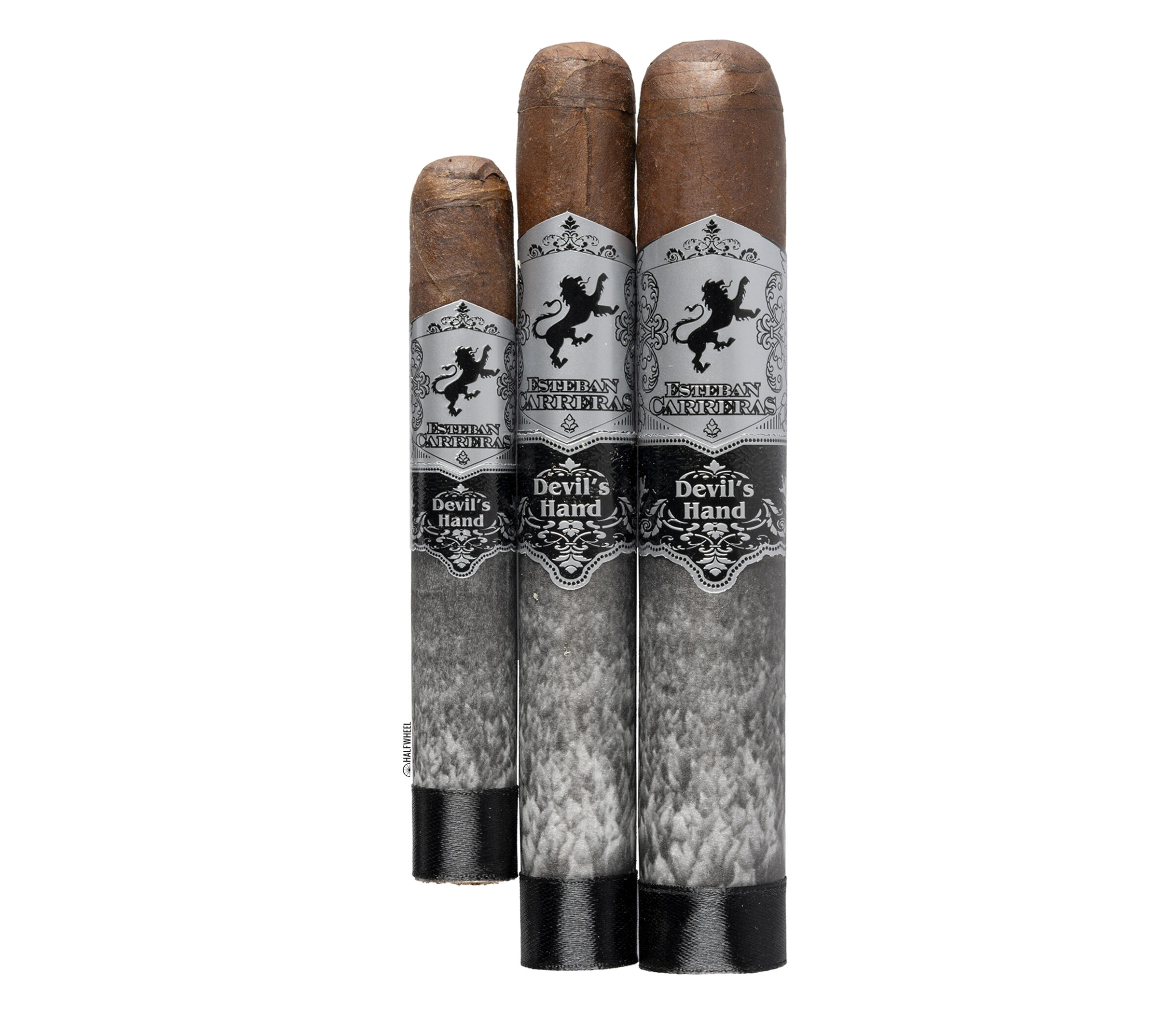
- Esteban Carreras Taken From the Devil’s Hand Corojo Maduro Boolit (4 3/4 x 46) — $8 (Box of 32, $256)
- Esteban Carreras Taken From the Devil’s Hand Corojo Maduro Toro (6 x 50) — $11.50 (Box of 20, $230)
- Esteban Carreras Taken From the Devil’s Hand Corojo Maduro Sixty (6 x 60) — $13 (Box of 20, $260)
While the line is considered to be a regular production part of the company’s portfolio, it is also more limited in its availability due to the process required to give the wrapper leaf its extra fermentation.
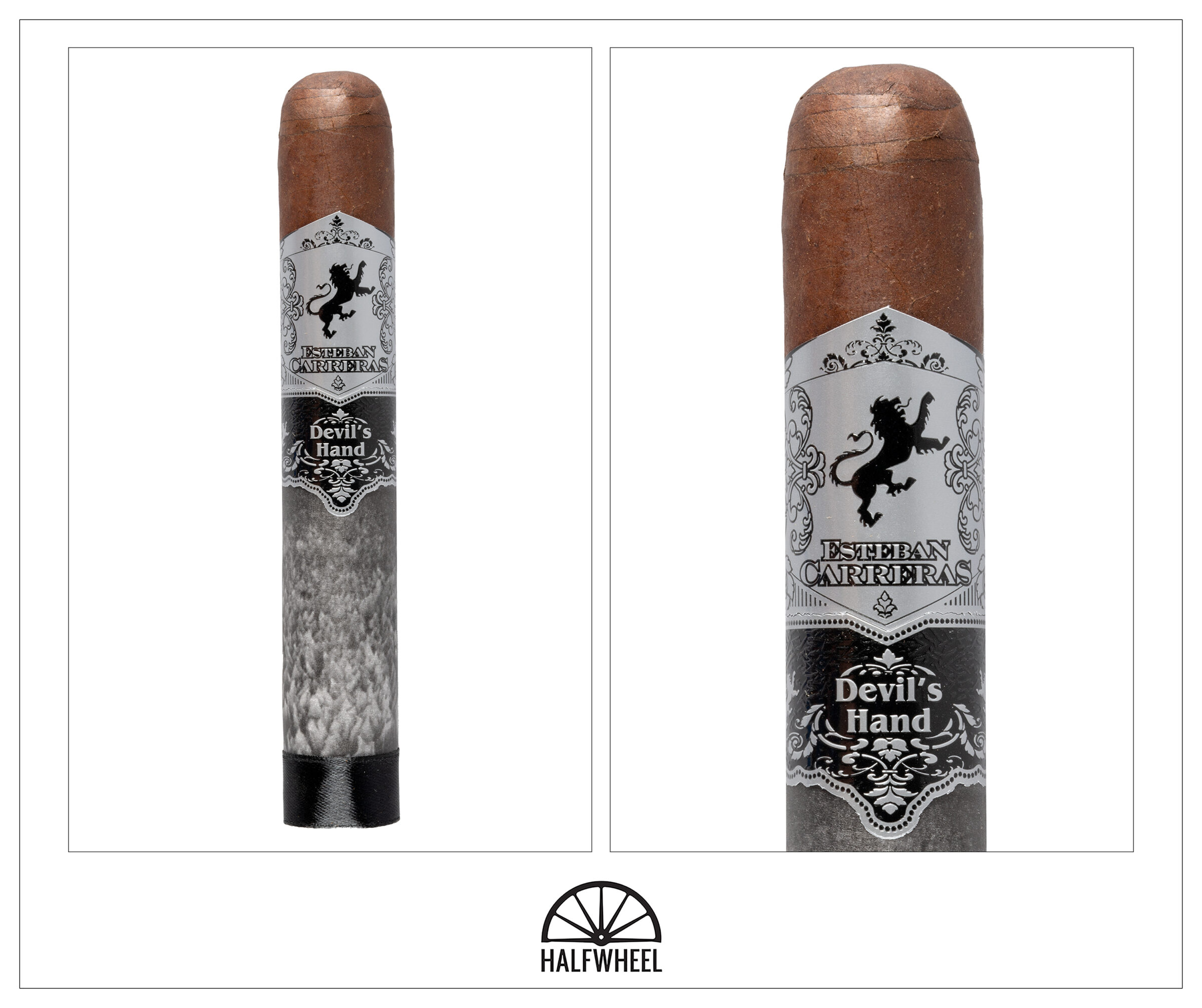
- Cigar Reviewed: Esteban Carreras Taken From the Devil’s Hand Corojo Maduro SIxty
- Country of Origin: Nicaragua
- Factory: Tabacalera Carreras
- Wrapper: Ecuador (Corojo Maduro)
- Binder: Nicaragua
- Filler: Nicaragua
- Length: 6 Inches
- Ring Gauge: 60
- Vitola: Gordo
- MSRP: $13 (Box of 20, $260)
- Release Date: July 2023
- Number of Cigars Released: Regular Production
- Number of Cigars Smoked For Review: 3
The Esteban Carreras Devil’s Hand Sixty is a traditional, round 6 x 60 gordo, a point I bring up because even after all these years of the vitola being a commonly found size, it still feels like a big cigar in my hand. At first glance, the space between the secondary band and the foot ribbon looks like it is covered in plume, or worse, mold, due to the way the paper that covers that space is printed. Thankfully, it’s not, so all I need to worry about now is how to get all the dressing off of the cigar. This is one of the few cigars I’ve come across where the ribbon on the foot isn’t affixed by tape, but by the same kind of adhesive used to affix the bands. The net effect in removing it is about the same in that I just have to get my fingernail hooked on the edge of the ribbon to peel it up, but the thickness of the ribbon makes that easier compared to the thinness of tape. Next comes the paper, which is held in place partially by the secondary band, leading to a choice as to whether to try and slide both off or peel up that secondary band and then the paper. Both techniques get used among the three cigars, a decision based on just how snug everything is. Sliding that paper off reveals an evenly colored wrapper with small veins, with a smooth, dry texture. All three cigars look to be rolled well and are firm on the whole, but each has spots of slight give. The foot has cool aromas of melted vanilla ice cream, along with a bit of wood and pepper. As soon as I put the cigar in my mouth, I am immediately reminded why a round 6 x 60 vitola isn’t my go-to vitola, and how beneficial a box press can be for this size. That said, air moves well on the cold draw, carrying a thin, generally dry profile that has some light wood, cardboard and card stock, a bit of creaminess and little if any pepper.
The Esteban Carreras Devil’s Hand Sixty starts with a familiar combination of earth and pepper, with more of the latter through the nose than on the palate at the onset. Subsequent puffs bring the two experiences into a bit more balance while adding cedar, creaminess and hazelnut. Those latter aromas also help to give the cigar a very pleasant aroma that doesn’t remind me of a cigar but a designed room scent. I find my taste buds gravitating to the creaminess in the profile more than anything, as it seems to become the stage for the other flavors to do their thing. As the first clump of ash falls, I reflect upon my expectations for a fuller, stronger and more vibrant profile, though I am quite pleased with how the three cigars all start. Retrohales shift just a bit to pick up a crisp pepper, an experience that I only pick up when exhaling the smoke through my nose, and it gives the cigar a slightly more vibrant and defined expression than what I get on the palate. While I might not be crazy about the size, I do have to give it credit for its slow burn rate and that it smokes at a fairly cool temperature, both of which seem to help the nuances of the blend stand out. It’s a profile that hovers right around medium, maybe medium-plus, while body is medium and strength is mild. Construction is very good, with my only note being one cigar having a slightly uneven burn line.
Continuing a trend from the first third, the second third starts off a bit mellower than previous puffs, with some dry earth and just a touch of pepper on the palate and what I’d call two touches of pepper through the nose. I can’t tell if it’s the blend or just my palate’s proclivity for it, but the creaminess in the profile really stands out as the second third hits its stride. After a fairly extended mellowing and holding of what the profile offers, there is some building pepper at the end of this section, a more potent expression that suggests some ligero leaves are in play. A fascinating bit of orange citrus sweetness closes out this section, occasionally a bit grilled and smoky, but a fascinating and welcomed addition to the profile whenever and however it appears. Flavor is medium, even medium-minus in this middle section, while body is medium and strength is mild, which I find a bit surprising. Construction remains very good, with an easy draw, good smoke production, and an even burn line that only once has me thinking of correcting it, though I opt not to do so.
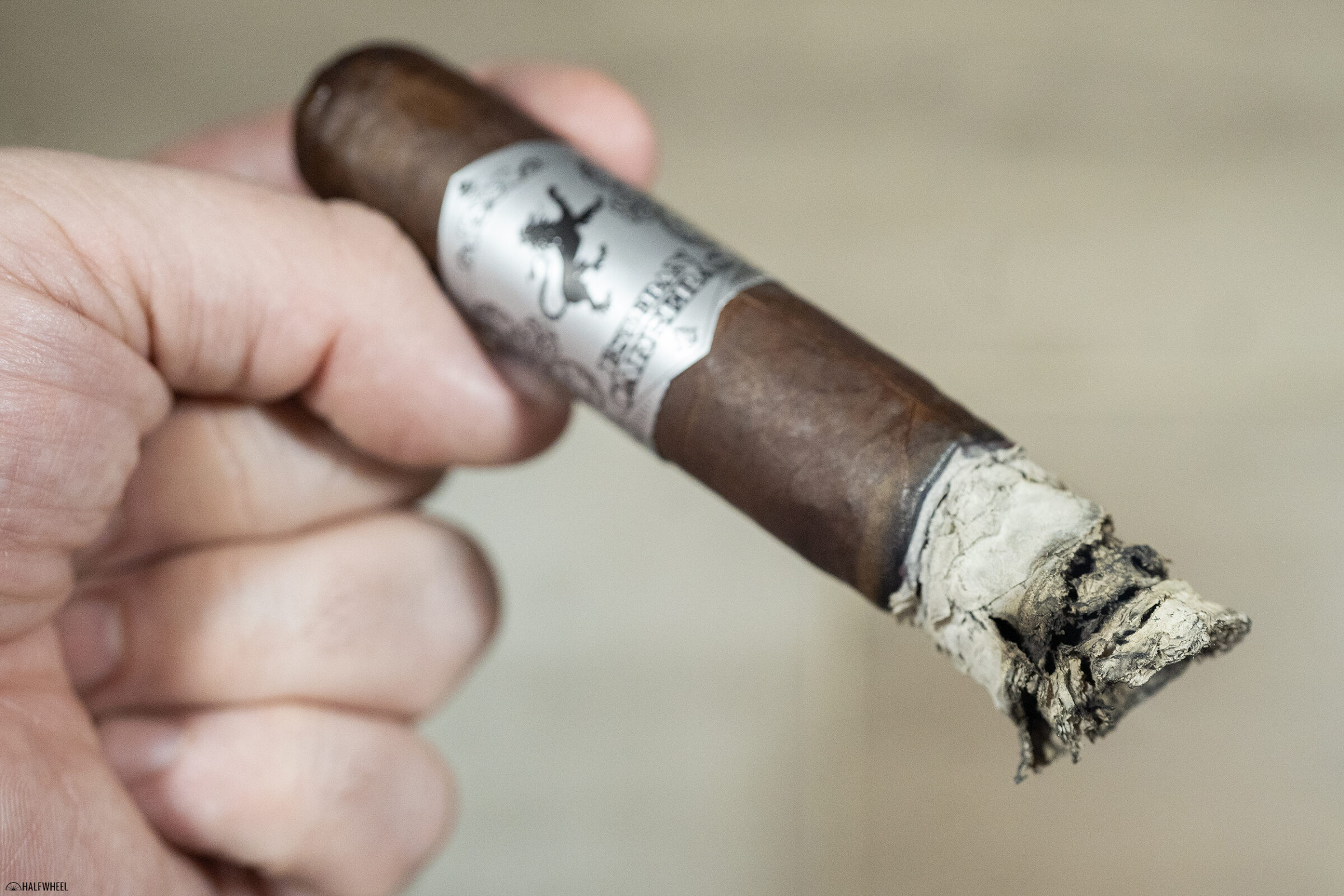
While I was expecting, maybe hoping for, more of the orange citrus sweetness, I get some fresh marshmallows at the start of the final third that gives a new spin to the creaminess that has been a constant thread thus far. There is also a rockier expression of the earth and black pepper that feels in line with both the corojo maduro and whatever implications come from a cigar with the words devil’s hand in its name, creating an interesting yin-yang between those two key notes. I get a bit of raw almond in between them, a flavor that works well to bridge the two, at least until the pepper and earth get a touch heavier and begin to take the lead in the final two inches or so. Retrohales are now a bit lighter than what I get on the palate, as they have more white pepper and some faint remnants of both creaminess and marshmallow, the latter of which has a distinctive dryness to it. It isn’t until the final inches that I find myself acknowledging the finish of the cigar, a thought that comes to mind as I now notice the puffs leaving a more pronounced tingle and taste on my tongue. The cigar finishes earthier, richer and with a lingering black pepper, the strongest flavor profile I have picked up thus far, yet one that stays in line with where the cigar has been thus far. Flavor is medium-full, body is medium-plus, and strength is still mild. Construction remains problem-free across the three cigars, with nothing detracting from the experience.
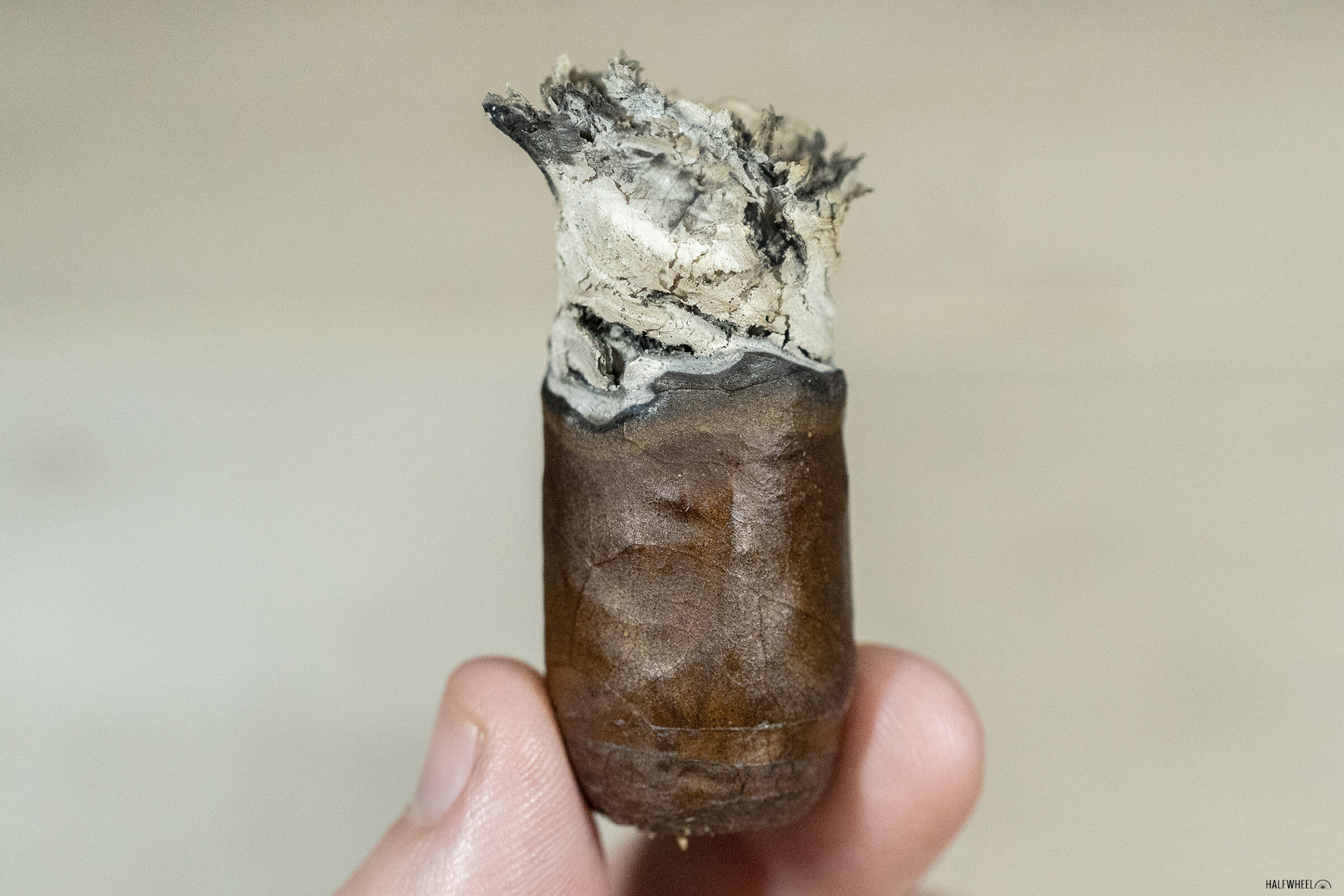
Final Notes
- One cigar’s wrapper had a number of water spots, so many that I have to think this particular cigar was only released because the paper would cover them.
- Charlie Minato reviewed the Taken From the Devil’s Hand Sixty in October 2022.
- I have to think that I probably smoked the original blend at some point, most likely a sample from the trade show, though I can’t say I recall it enough to do an honest comparison, so I’d have to rely on Charlie’s notes to do so, which also doesn’t feel fair, but does provide some interesting comparisons.
- The “low and slow” reference used by Craig Cunningham to describe how the wrapper on this cigar was fermented had me immediately thinking of barbeque.
- Two of the cigars had minor wrapper issues, both occurring in the second half of the cigar. Slight cracks emerged, though neither suffered any apparent issues from it.
- That said, the sounds of the wrapper cracking were not great, though they reminded me of how long it seems to have been since I last heard that sound.
- A lot of times, I note that a cigar will seemingly call out for a beverage, but in this case, that didn’t happen. I took a few sips of club soda along the way, and while my mouth didn’t start salivating, this was a cigar I was able to smoke without ever thinking about a beverage.
- In the category of interestingly named cigars coming out around the same time, Warped has a cigar line called The Devil’s Hands that came out in June 2022, just ahead of the release of Esteban Carreras’ Taken From the Devil’s Hand.
- While I was expecting strength, I didn’t find the Esteban Carreras Taken From the Devil’s Hand Corojo Maduro Sixty to offer much of it.
- The cigars for this review were purchased by halfwheel.
- Final smoking time was two hours and 10 minutes on average.
- Site sponsor Atlantic Cigar Co. carries the Esteban Carreras Devil’s Hand Sixty.
When it comes to the Esteban Carreras Taken From the Devil’s Hand Corojo Maduro Sixty, I might not be crazy about the vitola, but I definitely like the blend and if the vitola helps with that, it's a trade I'm willing to make. The cigar didn't have much of what I was expecting, whether it be strength, spice, or heavy flavors, but rather a profile that gets started on a familiar note, then incorporates more creaminess than I was expecting, finishing full and with the kind of flavors I was anticipating. While there are some spots where the profile is milder and more stripped down than I would have liked, there also weren't any moments that I found myself not liking. I'd certainly be interested in smoking this side-by-side with the original version, as well as seeing what the other sizes offer.

